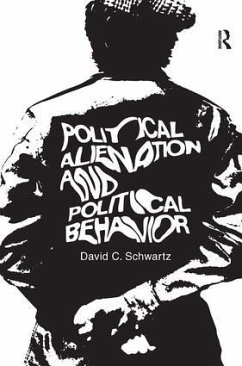
Corporate Political Behavior
Why Corporations Do What They Do in Politics
Versandkostenfrei!
Versandfertig in 1-2 Wochen
168,99 €
inkl. MwSt.
Weitere Ausgaben:

PAYBACK Punkte
84 °P sammeln!
Corporate Political Behavior centers on why corporations do what they do in politics. The text draws upon insights from the author's forty years of government and political experience-insights placed within an operating framework grounded in the political science and strategic issue management disciplines.














